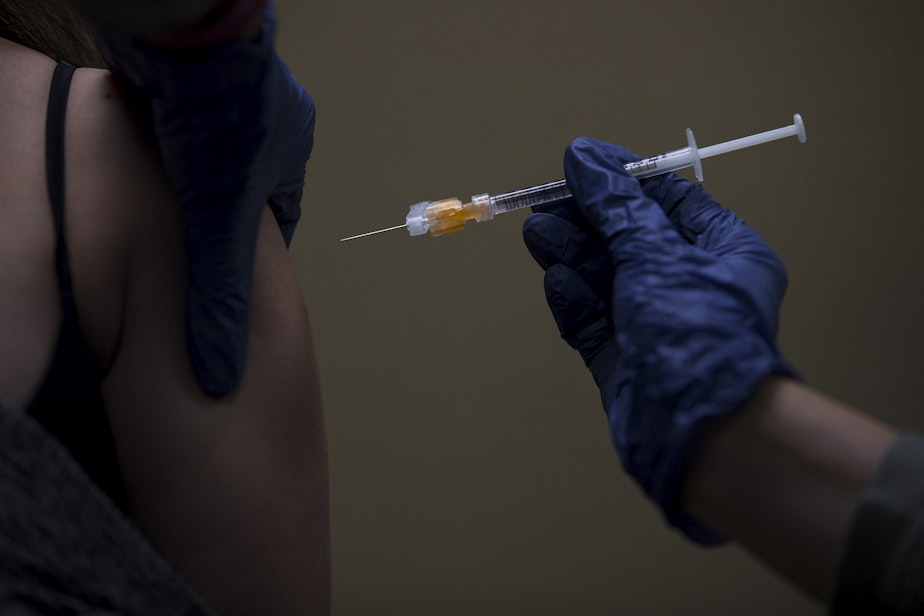What we know about breakthrough Covid in Washington state – and what we don’t

Breakthrough cases are not common in Washington state, health experts tell us. Below are questions we've been asking them — some answers won't come until fall.
How common are breakthrough cases in Washington state?
Not common at all.
From January 17 to July 24, only 0.1% of fully vaccinated Washingtonians tested positive for Covid.
And only 52 of the about 4 million Washingtonians who have been fully vaccinated have died of Covid; 37 of them had pre-existing conditions. And for 15 of them, it's unknown whether they had pre-existing conditions or not. Their median age was 83 years old.
Being vaccinated is the surest way to avoid the disease.
Are all breakthrough cases being counted?
Probably not.
There are likely some asymptomatic infections among fully vaccinated folks that the state doesn’t know about, but some health experts say we shouldn’t call those “breakthrough cases.”
Sponsored
That’s because, after getting the vaccine, you can still come into contact with the virus, inhale it, and get a positive test – but not get sick. And in that case, the vaccine is doing its job. It has primed your immune system to kill off the virus before it causes Covid.
So those experts say we shouldn’t call it a breakthrough “case” until there are actual symptoms, because that’s when the virus has actually broken through the vaccine.
But can those people who have coronavirus in their nostrils pass it along?
That’s a question researchers are working on right now: how often fully vaccinated people unknowingly transmit the virus to unvaccinated people — like their kids, for example. We don’t know yet.
But we do know that the virus slows down a lot in communities where most people are vaccinated, so it seems that the vaccine makes transmission less likely.
Sponsored
And we know that even when vaccinated people get an infection, they generally have less virus in their bodies — so they’re less likely to transmit it.
Some researchers are concerned that this is less true of the delta variant: that perhaps vaccinated people can have a high “viral load” in their nasal passages (even if the virus never makes it to their lungs and makes them sick) and thus can easily transmit this variant to others.
Most of the studies looking into this wrap up this fall, but each new variant will bring new uncertainty to the question.
What about long-haul symptoms if you’re a breakthrough Covid case?
There’s reason to believe that it’s unlikely to get long-haul Covid if you’ve been vaccinated.
Sponsored
One explanation for long Covid is that it’s a dysregulated immune response, and vaccinated people’s immune systems should, by and large, be able to respond fairly effectively to the coronavirus.
But a small study of fully vaccinated health care workers in Israel did find some Covid long-haulers, particularly people suffering from lingering fatigue after a fairly mild infection.
So that’s worrisome, because it looks like it’s possible — we just don’t know how probable — for fully vaccinated folks to get long Covid.
Are public health officials doing anything to try to tamp down breakthrough Covid?
The main thing they’re doing is focusing on getting people vaccinated. We know that vaccinated people are well protected from hospitalization and death, and they’re probably much less likely to even transmit the virus.
Sponsored
So the more people are vaccinated, the less the virus will be in circulation in the population, and the more protected everyone will be.




